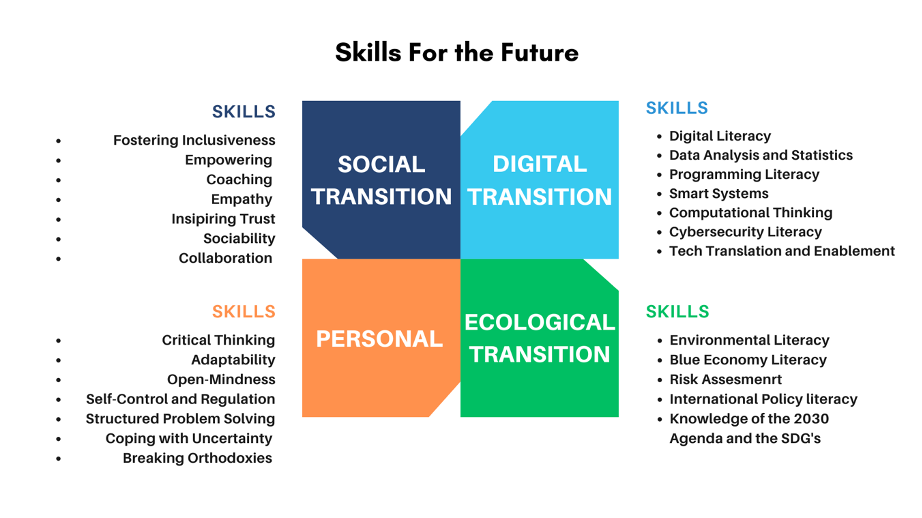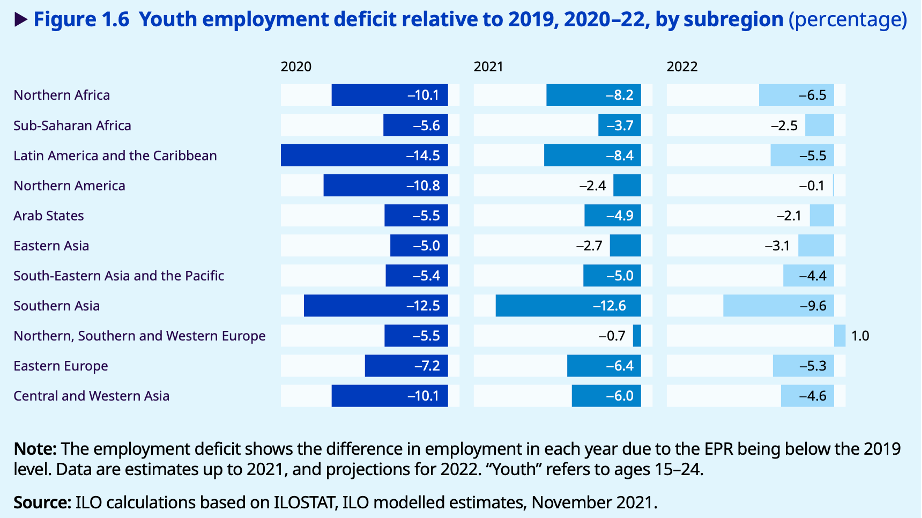 The future of higher education: skills for the world of tomorrow
The future of higher education: skills for the world of tomorrow
UNESCO IESALC, through its research and foresight, policy analysis, and capacity-building teams, working for youth and with youth, has identified the three major global transitions that we, as part of a global society, are experiencing: digital, social and ecological. To address these transitions, a new theory of change must be included in the design of the Futures of Higher Education. A theory that highlights the importance of a new and refreshed higher education system, that hones the proper skillset and tools to focus on abilities that help navigate the uncertainty and complexity of our times, such as critical thinking, adaptiveness, global citizenship, resilience and creativity. We have coupled these skills with others suggested in Defining the skills citizens will need in the future world of work by McKinsey & Company, to create the following graph as our guideline for higher education to navigate the global transition (Figure 1).

We see a world today that is moving at an unprecedented pace, defined by the hyper-speed produced by the rapid and constant technological advancements, climate change mitigation urgency and underlying structural social issues, which leads the world to a state of flux that permeates all aspects of life. Education and labour, unfortunately, do not escape this reality. As we can appreciate in the Report Global Employment Trends for Youth 2022: Investing in transforming futures for young people, published by International Labour Organization (ILO), it is estimated that 1.6 billion learners were affected by the COVID-19 pandemic. This disruption in their learning trajectory has produced a loss of basic literacy and numeric skills, jeopardizing their entrance to a tertiary level of education and subsequently to the labour markets.
In addition, ILO calculates the youth employment deficit to be around 8.2 per cent compared to 2019, showing that we are still managing the aftermath of COVID-19, especially in the global south. For instance, Latin America and the Caribbean, Southern Asia, and Northern Africa are among the top three affected regions (Figure 2).

The Director of UNESCO IESALC, Francesc Pedró, spoke about this issue at the World Youth Skills Day 2023 Event – YouthLead Innovation Spotlight on Teachers, Training & Future-Proof for Youth hosted by the United Nations Office of the Secretary General’s Envoy on Youth. He stated once again that overcoming these challenging realities is no small task and would require a holistic approach in which higher education has responsibilities, not only in equipping current and future professionals with the necessary skills to navigate the aforementioned transitions but also in successfully supporting them with lifelong learning tools for the constantly changing future.
Acting on key directions such as innovation, interconnectedness, transversality, interdisciplinarity, collaboration, adaptability, and resilience can streamline the transformation of higher education and its contribution to the 2030 Agenda. To address young people’s needs in skill development, the Youth Strategy Team at UNESCO IESALC has conducted a series of Global Mapping and Intergenerational Dialogues to gather perspectives and good practices of young people transforming education, and to identify the enabling skills required to innovate in the educational sector, and the support needed from higher education institutions and other educational stakeholders to allow the youth realize their potential as changemakers that can influence not only their communities but also the world. With these initiatives, UNESCO IESALC remains committed to its duty of finding collaborative solutions alongside youth within higher education and through cooperation with other educational stakeholders and partners to co-create a better and more sustainable future.
Author:
Teodoro Pearce Maury
Junior Consultant – UNESCO IESALC
0 Comments